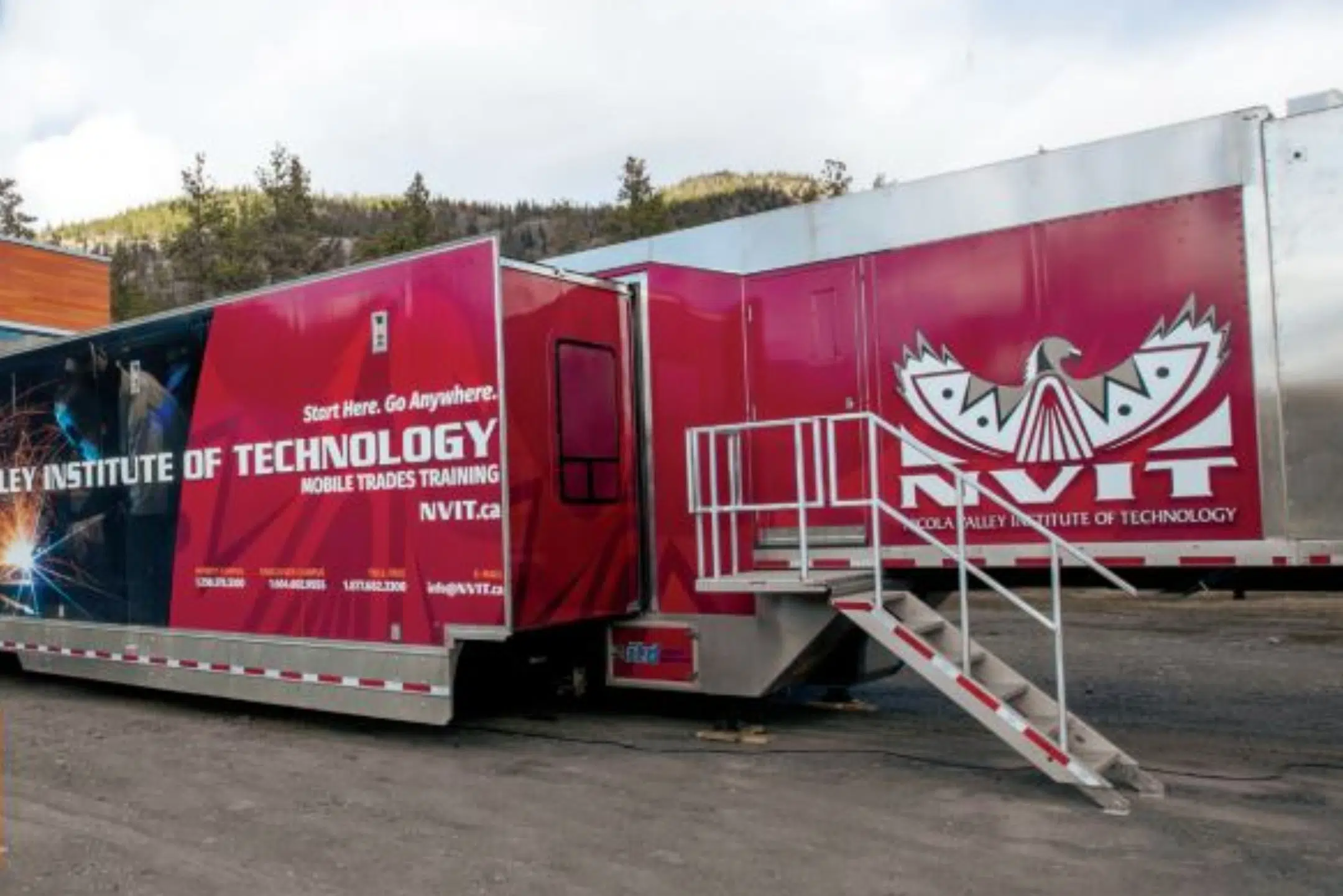
Supplied: Nicola Valley Institute of Technology
Post-secondary students in rural and remote Indigenous communities across British Columbia will soon have better access to healthcare and technology programs close to home.
This as the province has given the Nicola Valley Institute of Technology (NVIT) $3.4 Million to purchase three fully equipped mobile training units, for its healthcare assistant, practical nursing, and innovation and technology programs.
NVIT Vice President John Chenoweth says their institution, based out of Merritt, NVIT works to give students, in BC’s rural and remote Indigenous communities, better access to post-secondary education. He adds these three classrooms will help expand their reach.
“It’s very significant for what we do, about half of our deliveries, we send into communities throughout the province right now. We do about 30 programs a year in remote communities and just having the technology and health equipment to do a really fine delivery is going to be really beneficial to students and communities.”
Equipped with simulators, beds, computer workstations, and multi-media equipment, Chenoweth explains what these new, mobile classroom spaces will look like.
“The best way to think about it would be if you think of a Save on Foods reefer trailer, they are 53 feet long: it has two slide outs and it turns into approximately 1100 square feet of classroom space with any type of learning space or equipment you want,” he said. “TRU has a mobile trades trailer, and we have two mobile trades trailers that are quite similar, and these will look the same but rather than having trades equipment they will have health care equipment and technology.”
As for where NVIT brings these classrooms, Chenoweth suggests anywhere a truck can go.
“We have two bridging the trades trailers that we can do trades training remotely and we have had them into places Bella Bella, Bella Coola, Haida Gwaii, Blueberry River First Nation. They can go anywhere a truck can get into and in the case of Bella Coola and Haida Gwaii, we have had to use barges and a D-10 to get them out there because they are very heavy.”
Once the new units are fully operational, Chenoweth says the health lab will safely hold 18 students, at two intakes a year, benefiting 36 students in remote communities annually; while the new technology lab will see an intake of roughly 40 to 50 students every year.
“We all know that healthcare workers are in dire need across the province, and we deliver a lot of healthcare aide programs throughout BC; but we have to shift in a lab, which means beds, and equipment, into a band-operated facility or a community facility. What this trailer will allow us to do is to have a very modern, equipped, professional health lab that can be mobile and we expect to offer training in numerous communities every year,” he said.
“With the technology trailer and multimedia that is really going to open up opportunities to communities that maybe don’t have the infrastructure to offer programming that requires a great amount of technology, and we are really excited about that.”
Chenoweth hopes to have them fully operational by Spring 2023.
.